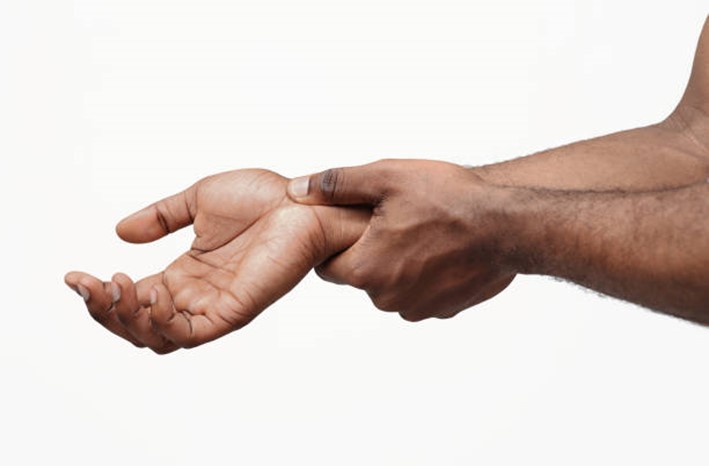Knee pain is a common complaint that affects people of all ages. Knee pain may be as a result of an injury, such as a ruptured ligament or torn cartilage. Medical conditions including arthritis, gout and infections, tight/tensed hip muscles or hip misalignment can also cause knee pain.
Causes
Tight hip flexors e.g. iliopsoas muscle is actually a very common cause of knee pain because it affects the mechanics of the way the hip moves, which also affects the alignment of the femur (or thigh bone) all the way down to the knee joint.
NB/ 1. When there's tension in the hip flexors, specifically in iliacus muscle, it will pull the pelvic bone forward into more of an anterior tilt position (relative to its natural alignment in a neutral position). This changes the orientation of the way the head of the femur fits into the hip socket, closing off the space and making it not move as well as it should.
- Tight iliotibial band: Overuse and repetitive flexion and extension of the knees usually cause iliotibial band syndrome. It occurs when the IT band becomes tight, irritated, or inflamed. This tightness causes friction on the outside of the knee when bending, which makes the knee very painful. Sometimes it causes referred hip pain.
- Tendinitis: pain in the front of the knee that is made worse when climbing, taking stairs, or walking up an incline
- Bursitis: inflammation caused by repeated overuse or injury of the knee
- Chondromalacia patella: damaged cartilage under the kneecap
- Gout: arthritis caused by the buildup of uric acid
- Baker’s cyst: a buildup of synovial fluid (fluid that lubricates the joint) behind the knee
- Rheumatoid arthritis (RA): a chronic autoimmune inflammatory disorder that causes painful swelling and can eventually cause joint deformity and bone erosion.
- Osteoarthritis: pain, inflammation, and joint destruction caused by degeneration and deterioration of the joint.
- Pelvic Instability; when the pelvis is out of alignment, the load of our body weight is distributed into the legs unequally. As a result, any of the joints in the legs, particularly the knees, can be adversely affected over time. Additionally, there is an increased risk of an acute injury because of the resultant instability/hip misalignment.
- Tight quadriceps and hamstring: The most common leg muscles to become tight and cause knee pain are your hamstring muscles (at the back of your thigh) and your quadriceps muscles (at the front of your thigh). If these muscles become tight they cause pressure over your patella (kneecap) causing it to rub on the joint beneath it.
Symptoms
The location and severity of knee pain may vary, depending on the cause of the problem. Signs and symptoms that sometimes accompany knee pain include:
- Swelling and stiffness
- Redness and warmth to the touch
- Weakness or instability
- Popping or crunching noises
- Inability to fully straighten the knee
Risk factors
- Lack of muscle flexibility or strength
- Excess weight
- Certain sports or occupations.
- Previous injury.
Treatment
Physiotherapy is incredibly beneficial for knee injuries. The manipulation of the muscles, tendons and tissues allows the pressure on the knee to be released hence enhance knee joint function without pain.
- Strengthening the muscles around your knee will make it more stable. Physical therapy or different types of strengthening exercises based on the specific condition that is causing your pain.
- Exercises to correct movement patterns that may be affecting your knees and to establish good technique during your sport or activity. Exercises to improve your flexibility and balance also are important.
- Arch supports, sometimes with wedges on one side of the heel, can help shift pressure away from the side of the knee most affected by osteoarthritis. In certain conditions, different types of braces may be used to help protect and support the knee joint.
Compiled by;
Naomi Wausi
Physical therapist

